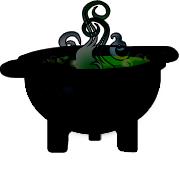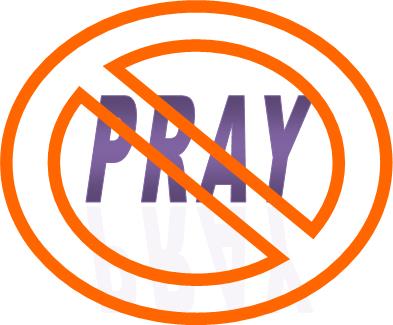The Test for a Prayer Warrior
How would you respond if God told you to leave Him alone and stop praying?
Seriously, if you knew that the Lord had said this, would you do it? Your first thought might be, “but I need His blessing, so I will keep praying.” So, let’s pose the question a different way:
How would you respond if the Lord told you to stop praying for others so that He could destroy the rebellious and pour out His great blessings on you?
Interesting question, isn’t it? But surely, such a request would not be found in God’s Word, right? Think again.
And the Lord said unto Moses, I have seen this people, and behold, it is a stiff-necked people: now therefore let me alone, that my wrath may wax hot against them, and that I may consume them: and I will make of thee a great nation. (Exodus 32:9-10)

According to Exodus 32:7, the people had “corrupted themselves.” This word “corrupted” refers to the most horrible kind of wickedness. They were committing wicked abominations before the God of heaven. Now Moses had just spent forty days and forty nights rejoicing in the Presence of the Lord. cauldronHe had enjoyed a true “mountaintop experience.” But the Lord knew that Moses would soon climb down from the mountain to face a boiling cauldron of corruption. How would Moses respond to the rebellion of the people?
The Lord gave Moses a golden opportunity to escape. Would he take it? After all, the Lord had promised to bless him! What could be better than that? Right?
When you stop to think about it, others could exercise this opportunity to escape. Jesus Christ certainly enjoyed the blessings of heaven. Did He have to come down to this corrupt world? As believers, we know that the promised joys of heaven are before us. We have eternal life and we are on our way! Does He want us to stop praying so to that He can destroy this world and bless us?
This passage really helps us understand how Moses “poured out his heart” to the Lord. The Scripture shows us the contents of his poured-out heart. Please read this in Exodus 32:11-35.
When Moses prayed this way, he was able to boldly confront these people. . .
Did Moses leave the Lord alone and refuse to pray? No, Moses recognized that this was a test. It was a test to see if he had the heart of an intercessor.
How could we be like Moses in Exodus 32 and pass this test for a prayer warrior?
1. Moses continued seeking the Lord. He didn’t leave the Lord alone. vs.11
2. He worshipped the Lord and praised Him for His magnificent power. vs. 11
3. He reminded the Lord that these were His people, vs. 11, not people that Moses had brought out by himself. (see vs. 7)
4. He reminded the Lord that His Glory – His reputation – was at stake. Moses wanted the Egyptians and all nations to know the God of Glory. vs. 12
5. Moses begged the Lord to turn His wrath away from these corrupted people. vs. 12
6. Moses asked the Lord to remember the promises that He had made to these same people. vs. 13

When Moses prayed this way, he was able to boldly confront these people the next day, vs. 30. He did not treat the people’s sin lightly; he declared their sin in detail, vs. 31. In his deep compassionate prayer for his corrupt people, Moses identified with them. He asked the Lord to “blot him out of His book,” if he pray_1would not forgive the people. Beginning that day, the Lord saved many people from destruction; He heard the prayer of the intercessor.
Moses reminds us of Jesus, who was willing to bear our curse for us. He reminds us of the Apostle Paul who could wish that he were accursed and cut off from Christ, if his people could be saved (Romans 9:3).
Now, the question for us is this: can we pass the test of an intercessor? Will we enter into a season of prevailing prayer? Yes, God’s blessings are around us and before us. We are secure in His love. But will we now pass the test of a prayer warrior and enter into intercession for corrupt people?
– Gordon Dickson
This article is a selection from the booklet “A Season of Prevailing Prayer.”

